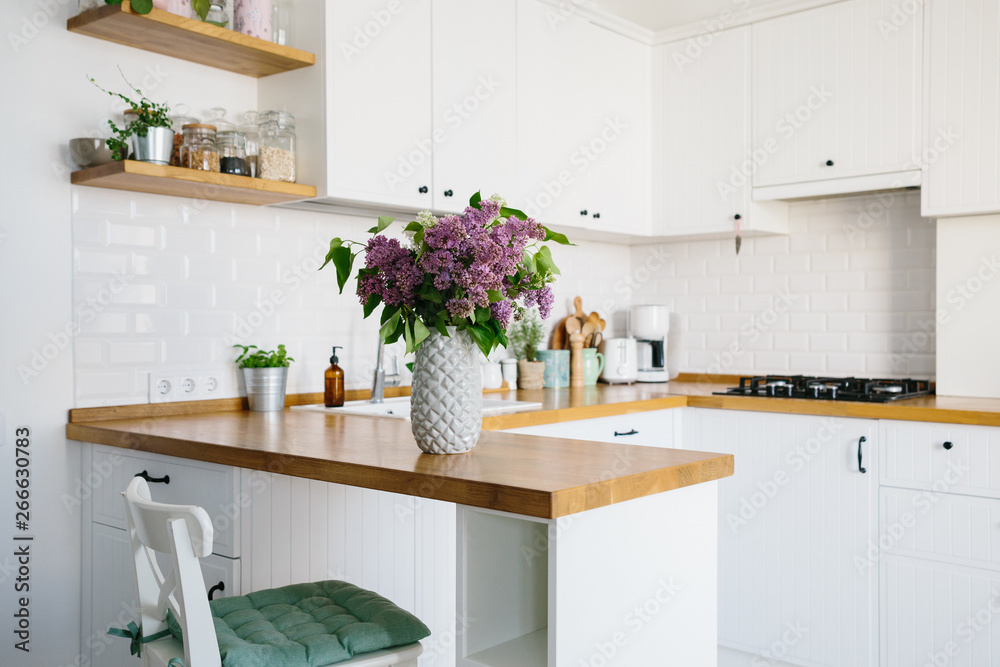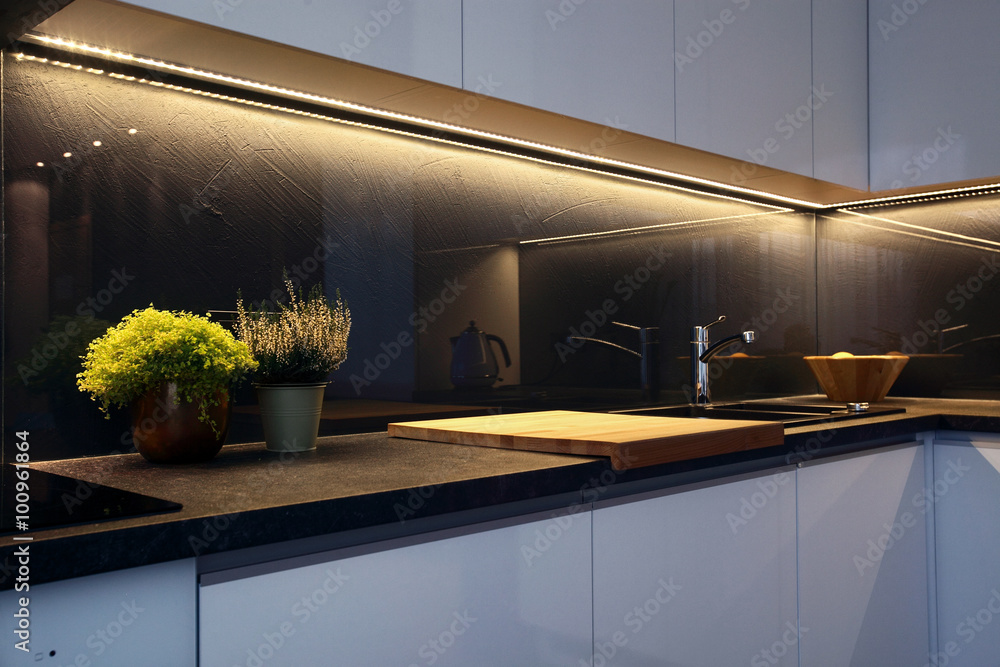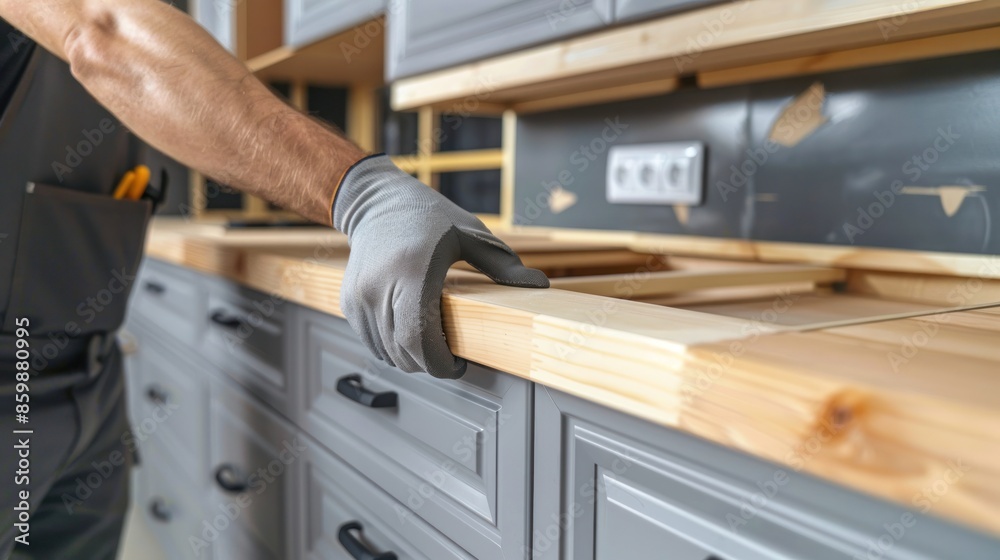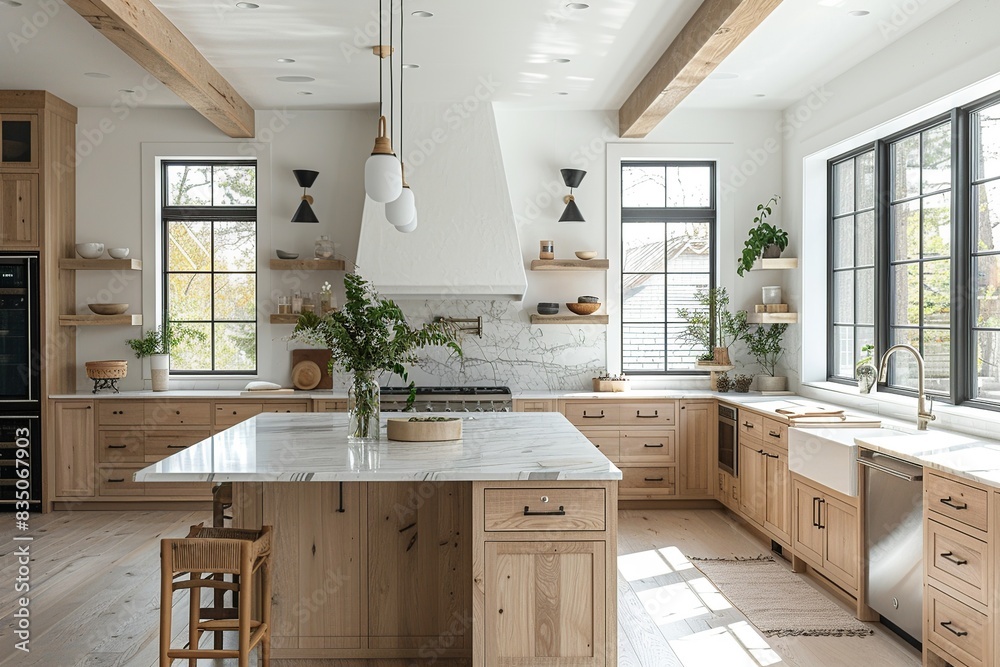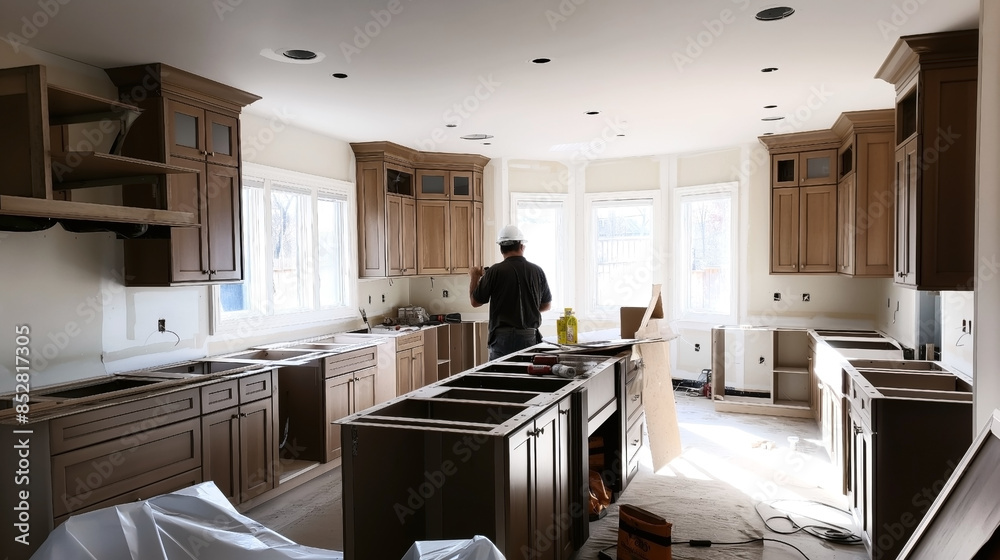When it comes to kitchen renovations, choosing the right countertop material is one of the most important decisions you’ll make. The countertop is not only a focal point in your kitchen but also a work surface that must withstand daily wear and tear. With a wide variety of materials available, each with its own set of advantages and disadvantages, it can be challenging to determine which option is best for your needs. In this article, we will explore the pros and cons of different kitchen countertop materials to help you make an informed decision.
1. Granite Countertops
Overview: Granite is a natural stone that has long been a popular choice for kitchen countertops due to its durability and aesthetic appeal. Each slab of granite is unique, offering a wide range of colors and patterns. Pros:- Durability: Granite is highly resistant to scratches and heat, making it an excellent choice for a busy kitchen.
- Aesthetic Appeal: The natural beauty of granite adds a luxurious touch to any kitchen. Its unique patterns and colors can complement a variety of design styles.
- Longevity: When properly sealed and maintained, granite countertops can last for decades.
- Cost: Granite can be expensive, especially for high-end slabs with unique patterns.
- Maintenance: Granite requires regular sealing to prevent stains and maintain its appearance.
- Weight: Granite is heavy, which may require additional structural support during installation.
2. Quartz Countertops
Overview: Quartz countertops are engineered stone surfaces made from natural quartz crystals combined with resin binders. They offer a wide range of colors and patterns, often mimicking the look of natural stone. Pros:- Durability: Quartz is extremely hard and resistant to scratches, stains, and heat. It is one of the most durable countertop materials available.
- Low Maintenance: Quartz countertops are non-porous and do not require sealing, making them easy to clean and maintain.
- Consistency: Because quartz is engineered, it offers consistent patterns and colors, making it easier to match with your kitchen design.
- Cost: Quartz can be expensive, comparable to or even higher than the cost of granite.
- Heat Sensitivity: While quartz is heat resistant, excessive heat can damage the resin binders, so it’s essential to use trivets or hot pads.
- Weight: Quartz is also heavy and may require additional support during installation.
Join HICP Homeowner’s Alliance
Connect with experts, get special discounts and enjoy member benefits
3. Marble Countertops
Overview: Marble is a natural stone known for its timeless elegance and luxurious appearance. It is often used in high-end kitchen designs and is prized for its veining and unique patterns. Pros:- Aesthetic Appeal: Marble’s beauty is unmatched, with its distinctive veining and wide range of colors. It adds a touch of sophistication to any kitchen.
- Heat Resistance: Marble is naturally heat resistant, making it suitable for baking and cooking areas.
- Longevity: With proper care, marble countertops can last a lifetime.
- Maintenance: Marble is porous and prone to staining and etching from acidic substances. It requires regular sealing and careful maintenance.
- Durability: Marble is softer than granite and quartz, making it more susceptible to scratches and chips.
- Cost: Marble is one of the more expensive countertop materials.
4. Laminate Countertops
Overview: Laminate countertops are made from layers of plastic bonded to particleboard or MDF. They are available in a wide range of colors and patterns, including designs that mimic natural stone and wood. Pros:- Affordability: Laminate is one of the most budget-friendly countertop materials available.
- Versatility: Laminate offers a vast array of colors, patterns, and textures, allowing for extensive customization.
- Ease of Installation: Laminate countertops are relatively easy to install, making them a popular choice for DIY projects.
- Durability: Laminate is not as durable as natural stone or quartz. It is prone to scratches, burns, and chipping.
- Heat Sensitivity: Laminate can be damaged by excessive heat, so it is essential to use trivets and hot pads.
- Longevity: Laminate countertops have a shorter lifespan compared to other materials and may need to be replaced more frequently.
5. Butcher Block Countertops
Overview: Butcher block countertops are made from strips of wood glued together to form a solid surface. They offer a warm, natural look and are often used in farmhouse and rustic kitchen designs. Pros:- Aesthetic Appeal: Butcher block countertops add warmth and natural beauty to a kitchen. They develop a rich patina over time.
- Work Surface: Wood provides an excellent surface for food preparation, particularly for cutting and chopping.
- Renewable: Butcher block can be sanded and refinished to remove scratches and stains, extending its lifespan.
- Maintenance: Butcher block requires regular oiling to prevent drying and cracking. It is also susceptible to water damage and staining.
- Durability: Wood is softer than stone and can be easily scratched and dented. It is also vulnerable to heat and moisture.
- Hygiene: Wooden countertops can harbor bacteria if not properly cleaned and maintained.
6. Concrete Countertops
Overview: Concrete countertops are custom-made surfaces that can be molded to any shape and finished with various textures and colors. They offer a modern, industrial look. Pros:- Customization: Concrete can be customized in terms of shape, color, and texture, allowing for unique and personalized designs.
- Durability: Concrete is highly durable and resistant to heat and scratches.
- Aesthetic Appeal: Concrete provides a contemporary, industrial look that can be enhanced with various finishes and inlays.
- Cost: Custom concrete countertops can be expensive due to the labor-intensive installation process.
- Maintenance: Concrete is porous and requires regular sealing to prevent stains and cracks.
- Weight: Concrete is very heavy and may require additional structural support.
7. Solid Surface Countertops
Overview: Solid surface countertops are made from a blend of acrylic or polyester resins and natural minerals. They offer a seamless, uniform appearance and are available in various colors and patterns. Pros:- Seamless Appearance: Solid surface countertops can be fabricated with no visible seams, providing a smooth, uniform look.
- Low Maintenance: Solid surfaces are non-porous, easy to clean, and resistant to stains.
- Repairable: Scratches and minor damage can be sanded out, making the countertop look like new again.
- Heat Sensitivity: Solid surface countertops can be damaged by excessive heat, so it is important to use trivets and hot pads.
- Durability: While durable, solid surface countertops are not as hard as stone or quartz and can be scratched.
- Cost: Solid surface materials are mid-range in price, generally more expensive than laminate but less expensive than natural stone.
Conclusion
Choosing the right kitchen countertop material involves weighing the pros and cons of each option based on your budget, lifestyle, and aesthetic preferences. Granite, quartz, marble, laminate, butcher block, concrete, and solid surface countertops each offer unique benefits and drawbacks.- Granite: Ideal for those seeking durability and natural beauty but comes with higher costs and maintenance requirements.
- Quartz: Offers exceptional durability and low maintenance, making it a great choice for busy kitchens, though it can be pricey.
- Marble: Provides timeless elegance but requires careful maintenance to prevent staining and damage.
- Laminate: A budget-friendly option with diverse design choices but is less durable than other materials.
- Butcher Block: Adds warmth and is perfect for avid cooks but requires regular upkeep to maintain its appearance.
- Concrete: Allows for extensive customization and durability but can be costly and requires sealing.
- Solid Surface: Offers a seamless look and easy maintenance, though they are not as heat-resistant as stone.


